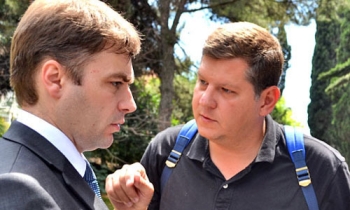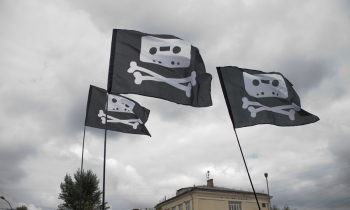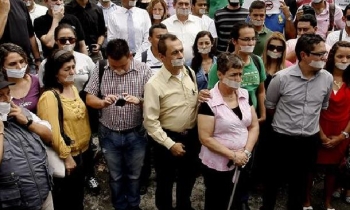Kazakhstan will become the first ex-Soviet state to assume the chairmanship of the Organisation for Security and Cooperation in Europe (OSCE).
The oil-rich Central Asian state will occupy the chair in 2010 -- one year later than it had sought, OSCE Deputy Spokesperson Virginie Coulloudon told Radio Free Europe / Radio Liberty (REF/RL) in Madrid just after the two-day summit's final press conference Friday. The United States (US) reportedly gave its backing after securing a Kazakh "pledge" that Astana would "protect" the OSCE's election-monitoring body, whose role Russia had proposed to alter.
Kazakhstan was ranked 125th out of 169 countries in this year’s Reporters sans Frontières (RSF) world press freedom index. The decision has been condemned by RSF. “A country where press freedom stops as soon as the president or ruling party is called into question is not an appropriate choice to preside the OSCE, an organisation that defends democratic values,†RSF said. “We are disturbed by the thought of a Kazakh presidency as it could undermine the work of an organisation whose work until now has earned a great deal of respect.â€
Cases of journalists being harassed are common in Kazakhstan. There has been no let-up in the pressure on government opponents and journalists in recent month. Blockage of opposition websites, obstruction of the printing and distribution of independent newspapers and confiscation of newspaper issues critical of the government were among the free speech violations noted by OSCE last year.
Abusive use is often made of the laws governing media activity, and opposition access to the press is limited. Journalists are subjected to violence, intimidation and abuse of authority. The editor of an opposition weekly, Batyrkhan Darimbet, died on August 2 in very suspicious circumstances and may have been killed because of articles criticising the authorities.
Kazakhstan would be the first former Soviet republic to head OSCE. Most of the European countries, including Germany and France, supported Kazakhstan’s candidacy, arguing that it embarked on serious democratic reforms this year. Britain and the United States did not express the same degree of support because they think its democratic record is deplorable.
Reelected with 91 per cent of the vote, President Nursultan Nazarbayev is an autocrat. Political pluralism is non-existent. Kazakhstan’s failure to meet international standards were yet again highlighted in an OSCE report in August.









